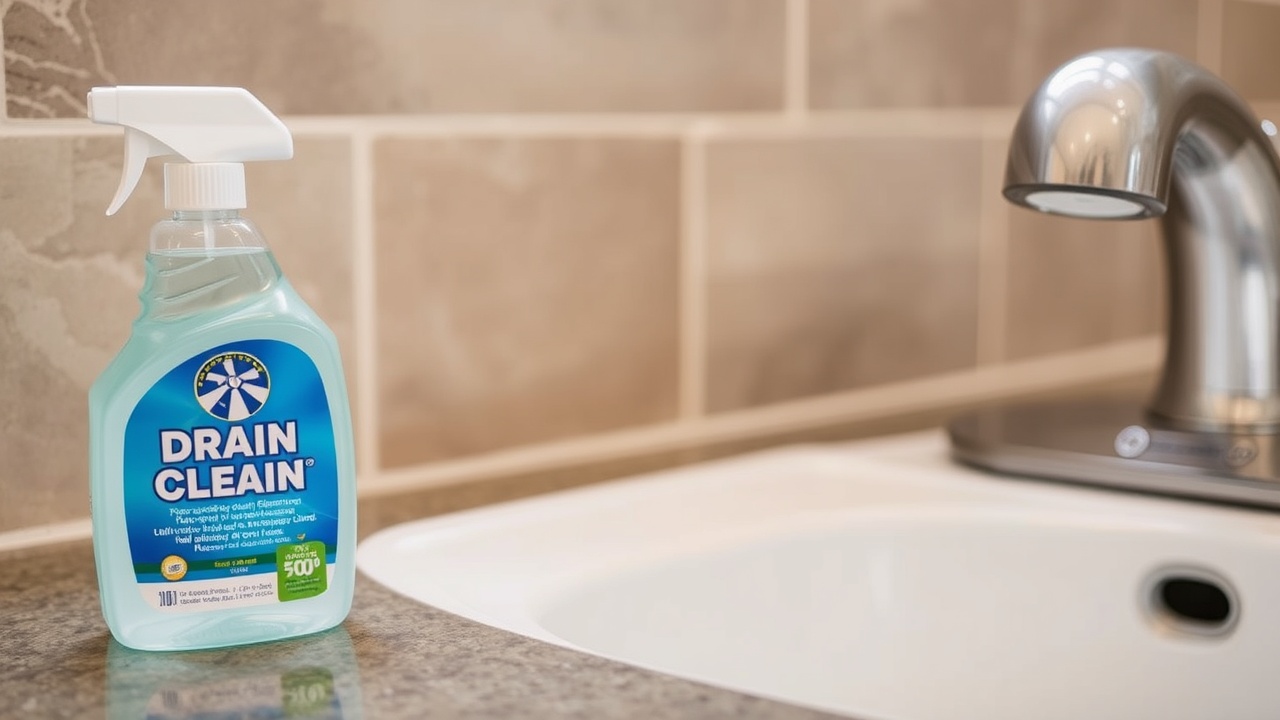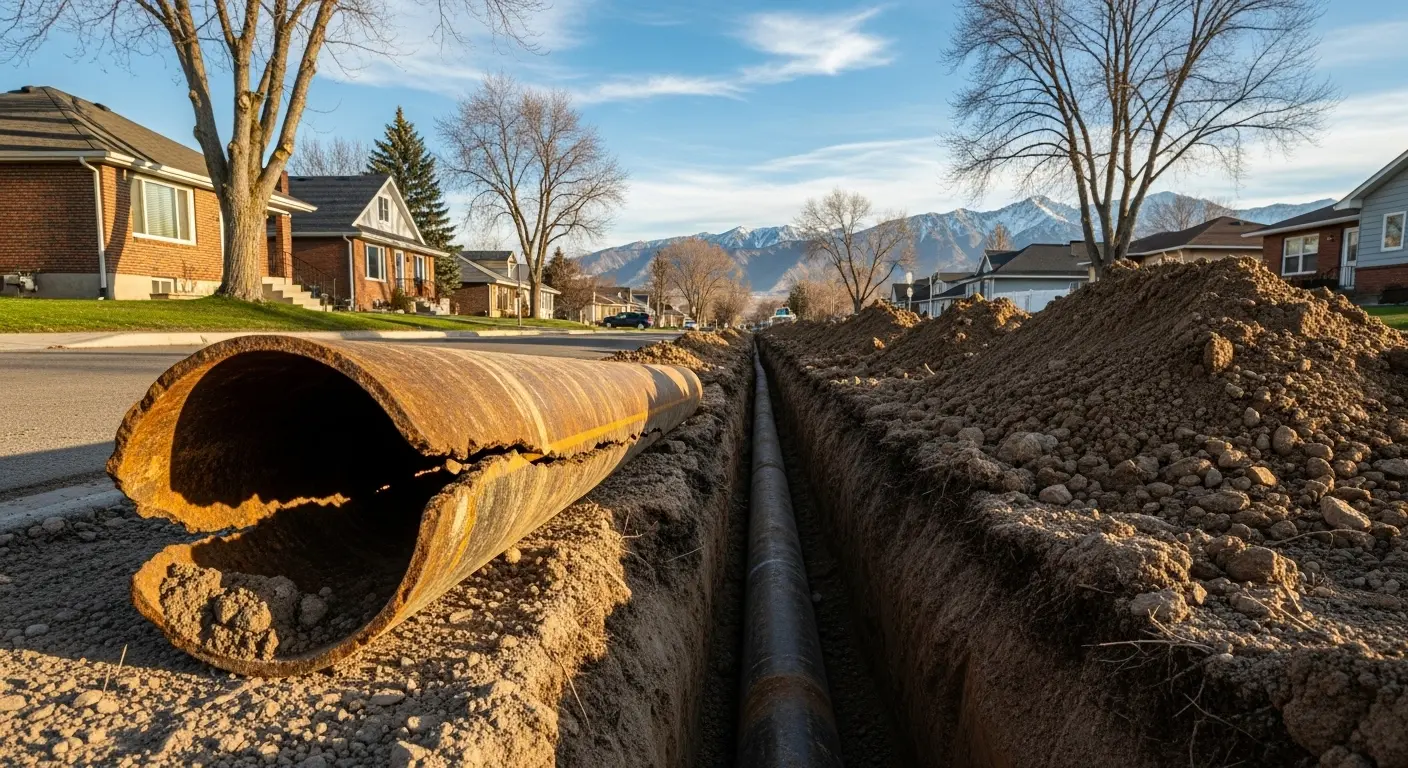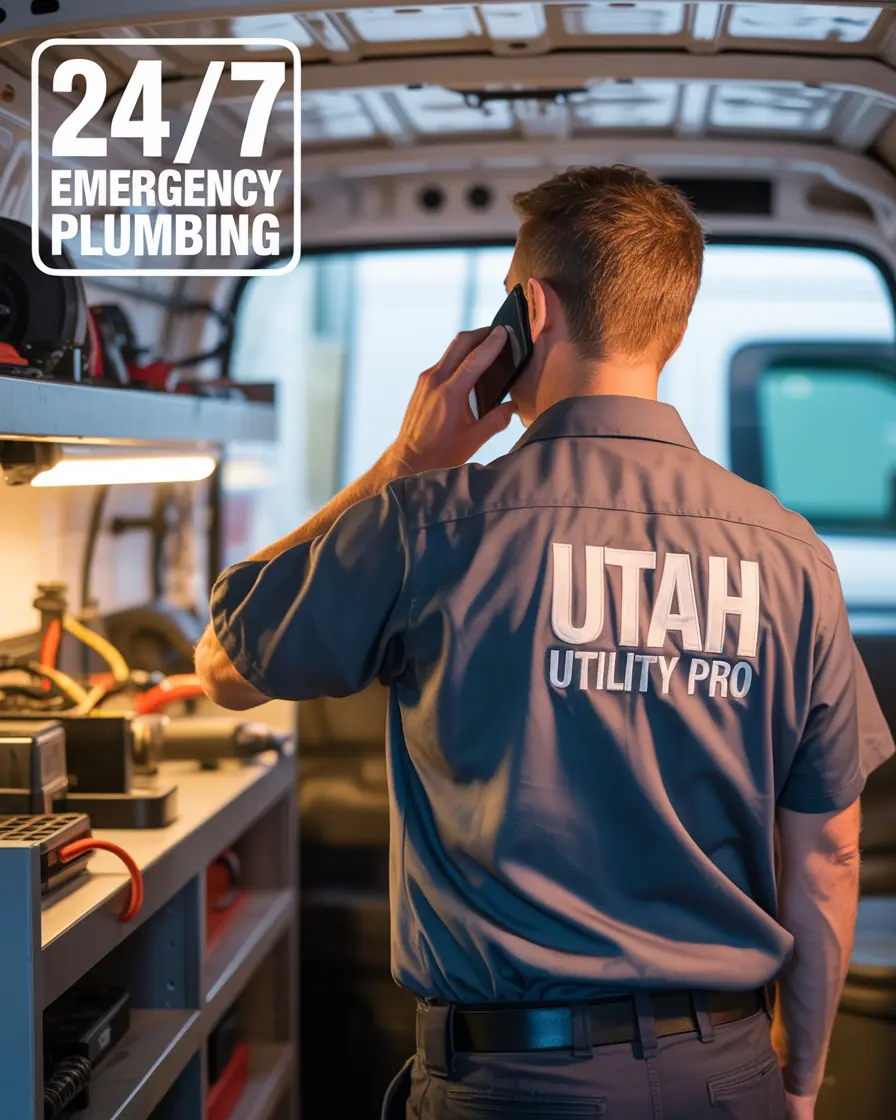Unclog Your Kitchen Sink Drain: Fix Clogs Without a Plumber
Learn how to unclog a kitchen sink without a plumber! Fix that clogged drain with baking soda and more.

Is your kitchen sink stubbornly holding onto water? A clogged kitchen sink is a common household headache, but don't reach for those harsh chemicals just yet! Often, you can unclog a kitchen sink drain without needing to call a plumber. This guide will walk you through the common causes of kitchen sink drain clogs and provide simple, effective solutions you can try yourself. At Utah Utility Pro, we understand the frustration of a clogged drain, and we're here to help you tackle it with confidence. Remember, we're your trusted local experts, ready to assist if you need us! We want to help you avoid needing to call the plumber for simple fixes.
Understanding Kitchen Sink Clogs

Common Causes of Clogged Drains
One of the primary culprits behind a clogged drain is grease. When hot grease cools, it solidifies and sticks to the drain pipe walls, trapping other debris. Other materials significantly contribute to drain blockages, including:
- Food scraps, especially if you don't have a good garbage disposal. Coffee grounds, eggshells, and fibrous vegetables can easily accumulate and form a blockage.
- Soap scum, hair, and mineral buildup from hard water, which can slowly narrow the drain line and restrict water flow.
Understanding these common causes is the first step in preventing future clogs. Remember to properly dispose of grease, and avoid putting problematic food items down your kitchen drain.
Signs Your Sink is Clogged
Here are a few common indicators of a clogged sink. You might observe the following:
- Standing water in the kitchen sink, draining slowly or not at all, indicating a blockage.
- A gurgling sound coming from the drain when water is running, suggesting trapped air struggling past the clog.
- An unpleasant odor emanating from the drain, often caused by decomposing food particles.
If you have a double sink, and one side drains slower than the other, it suggests a clog in the affected drain. Addressing these signs early can prevent a minor issue from becoming a major plumbing problem.
Importance of Timely Action
Ignoring a clogged drain can lead to bigger problems down the road. A minor blockage can quickly worsen as more debris accumulates, potentially causing a complete drain blockage. This can lead to unpleasant odors, unsanitary conditions, and even damage to your drain pipes. The pressure from standing water can also put stress on your plumbing fixtures, potentially leading to leaks or other costly repairs. Taking timely action to unclog a sink can save you time, money, and frustration in the long run. Addressing a clog early often means you can unclog a drain without resorting to calling a plumber or using chemical drain cleaners. Plus, our team at Utah Utility Pro is always here to help if the problem escalates!
Ways to Unclog a Drain
Using a Plunger Effectively
When you try to unclog your kitchen sink drain, start with the basics. Here are some key things to remember when using a plunger:
- Make sure there's enough standing water in the sink to cover the cup of the plunger. This creates a seal, allowing you to effectively apply pressure to the clog.
- If you have a double sink, seal off the other drain opening with a wet cloth or a second stopper to maintain suction.
Vigorously plunge up and down for several minutes, maintaining the seal. The force of the plunger can often dislodge the blockage. If the water clears after a few attempts, you've successfully unclogged the drain! If not, it might be time to explore other methods or call the plumber at Utah Utility Pro for expert assistance.
Baking Soda and Vinegar Method
For a more natural approach to fix a clogged drain, try the baking soda and vinegar method. First, remove standing water from the clogged sink. Pour one cup of baking soda down the drain, followed by one cup of vinegar. The mixture will fizz, creating pressure that helps to break down the clog. Let it sit for about 30 minutes, allowing the baking soda and vinegar to work their magic. After the waiting period, flush with hot water. This method is especially effective for dissolving grease and other organic matter that contributes to clogs. If you've tried baking soda and vinegar before without success, it might be worth repeating the process or considering a different approach.
If this doesn't work, we can unclog a sink for you!
Boiling Water Technique
Sometimes, all it takes to unclog a kitchen drain is a little boiling water. This technique is particularly effective for clogs caused by grease. Carefully pour a pot of boiling water directly into the clogged drain. The heat can melt away the grease and loosen other debris, allowing the water to clear. Be cautious when using boiling water, especially with PVC drain pipes, as extreme heat can sometimes damage them. If the clog persists, you might need to repeat the process a few times. If boiling water alone doesn't unclog a sink, it could indicate a more significant blockage requiring further attention. Remember, if you're uncomfortable tackling the problem yourself, Utah Utility Pro is just a phone call away!
Tools for Unclogging Your Sink
Using an Auger for Tough Clogs
When you try to unclog a particularly stubborn clogged drain, a drain auger, sometimes called a plumbing snake or drain snake, can be an invaluable tool. An auger is designed to reach deeper into the drain line than a plunger can, breaking up or retrieving the blockage. To use a drain auger, carefully insert the snake into the clogged drain opening and feed it down until you encounter the clog. Rotate the handle to break up the clog or hook it so you can pull it out. This is especially effective for hair, grease buildup, and other debris that tends to accumulate in kitchen drains. If you are having trouble snaking your kitchen sink, it may be time to call the plumber!
When to Use a Drain Snake
A drain snake is most effective when dealing with clogs that are located further down the drain pipe and can't be dislodged with a plunger or baking soda and vinegar. If you suspect the blockage is caused by hair, food scraps, or other solid materials, a drain snake is a good choice. It's also useful if you've already tried baking soda and vinegar or boiling water without success. For a kitchen sink with a garbage disposal, be sure to turn off the power to the disposal before inserting the drain snake to prevent any accidents. When used properly, a drain snake can quickly unclog a drain without the need for harsh chemicals or a plumber visit. We want to help you fix a clogged drain!
How to Use a Drain Stopper
A drain stopper is a simple but effective tool for preventing clogs and assisting in unclogging your kitchen sink. Regularly using a drain stopper while washing dishes can prevent food particles from going down the drain and causing a blockage. When using a plunger, a drain stopper can help create a better seal, maximizing the plunger's effectiveness. For a double sink, use a stopper on one side while plunging the other to maintain suction. A simple stopper can save you from having to try to unclog your sink in the first place! Remember, preventing clogs is always easier than fixing them! Remember Utah Utility Pro for all your plumbing needs!
Preventing Future Clogs
Regular Maintenance Tips
Preventing a clogged kitchen sink is much easier than having to try to unclog it! Simple regular maintenance can save you from future headaches. Flush with hot water regularly to help prevent grease buildup in your drain line. Avoid pouring grease down the drain. Instead, dispose of it properly in a container. Use a drain stopper to catch food particles and prevent them from going down the drain. Periodically clean the p-trap under your kitchen sink to remove accumulated debris. Remember, consistent care will help keep your kitchen drain flowing smoothly! If you need help with this, call the plumber here at Utah Utility Pro.
Proper Disposal Practices
Proper disposal practices are crucial in preventing clogs. Never pour grease down the drain, as it solidifies and causes blockages. Scrape food scraps into the trash or compost bin instead of rinsing them down the drain. Avoid putting coffee grounds, eggshells, and fibrous vegetables into your garbage disposal, as these can contribute to clogs. When using your garbage disposal, always run plenty of cold water to help flush the debris through the drain pipe. By following these simple guidelines, you can significantly reduce the risk of a clogged drain. If you're still struggling with this, call Utah Utility Pro to fix a clogged drain.
Cleaning Your Garbage Disposal
Your garbage disposal can be a major source of kitchen sink clogs if not properly maintained. To keep it clean, run cold water while operating the disposal to help flush debris. Avoid grinding hard items like bones or fruit pits. Periodically, you can freshen and unclog a smelly garbage disposal by grinding ice cubes and lemon or lime wedges. This helps dislodge any built-up food particles and eliminate odors. If your kitchen sink with a garbage disposal is making unusual noises or not working effectively, it might be time for a professional cleaning or repair. We at Utah Utility Pro are here to plumb for you!
When to Call a Plumber
Signs You Need Professional Help
While many clogs can be resolved with DIY methods, there are times when it's best to call a plumber. If you've tried baking soda and vinegar, a plunger, and a drain snake without success, it's likely a more serious issue. Recurring clogs, slow drainage despite your efforts, or gurgling sounds coming from multiple drains are all signs of a deeper problem. Additionally, if you suspect a drain pipe has collapsed or is severely damaged, it's crucial to seek professional assistance immediately. Utah Utility Pro provides comprehensive plumbing solutions for residential properties. We offer 24/7 emergency assistance.
Cost Considerations for Plumbing Services
Before you call a plumber, it's helpful to understand the cost considerations involved. The cost of plumbing services can vary depending on the complexity of the issue, the time required for the repair, and the plumber's rates. Simple clog removal might be a relatively inexpensive service, while more extensive repairs or replacements will likely cost more. It's always a good idea to get a free quote from a reputable plumbing company before proceeding with any work. Utah Utility Pro offers free quotes and addresses urgent plumbing issues like burst pipes and overflows. Our fast and fair help solves plumbing needs quickly and affordably.
Choosing the Right Plumber
Choosing the right plumber is essential for ensuring quality service and peace of mind. Look for a licensed and insured plumber with positive reviews and a strong reputation in your area. A good plumber will be able to accurately diagnose the problem, provide a clear explanation of the necessary repairs, and offer a fair price. Prioritize clear communication, providing honest advice to customers on maintaining their plumbing systems for long-term reliability. Utah Utility Pro prides itself on its team of licensed plumbers with years of experience. Our mission is to deliver fast, fair, and professional plumbing services to families in Salt Lake City, so call the plumber you can trust.
.webp)
.webp)




